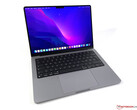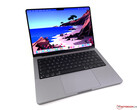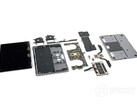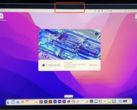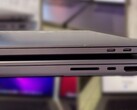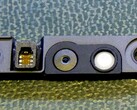In lieu of Bootcamp drivers, we thought we turned to Parallels Desktop 17 to see how Windows 11 ran on our new MacBook Pro 14 with an M1 Pro SoC. For reference, Parallels Desktop 17 is the only version of the popular virtualisation software that can run Windows 11 without requiring a Pro subscription.
In short, Windows 11 in Parallels Desktop 17 feels as smooth as running Microsoft's latest OS natively on a laptop. The benchmark performance surprised us somewhat though, with the entry-level MacBook Pro 14 able to keep pace with AMD and Intel's latest and greatest mobile processors. We should stress that this is in no way scientific; we will publish our MacBook Pro 14 review in due course where will cover all aspects of the machine's synthetic and real-world performance.
Of the Geekbench tests we ran, the MacBook Pro 14 and M1 Pro averaged 1,545 points in the single-core test and 5,198 in the multi-core one. Additionally, the machine scored lows of 1,540 and 5,102 plus highs of 1,557 and 5,307, respectively. According to our database, these average scores put the entry-level M1 Pro slightly ahead of the Core i7-1165G7 in both benchmarks, albeit while running Windows 11 in a virtual machine (VM).
Additionally, the SoC outscores the Ryzen 5 5600U in the multi-core benchmark, along with a host of other recent laptop-class processors. Unsurprisingly, the M1 Pro scores much higher when benchmarked in the macOS version of Geekbench. However, we were only interested in how well the M1 Pro fared running Windows 11 virtually. As it turns out, the SoC performs about as well as other modern laptop processors, even with the performance loss associated with running a VM.









